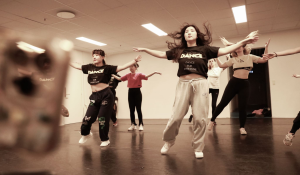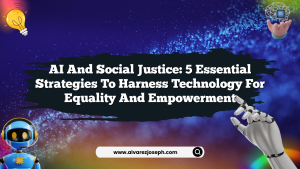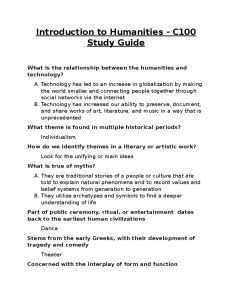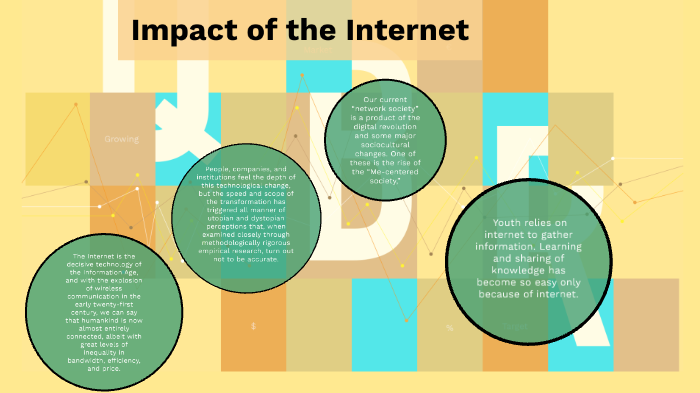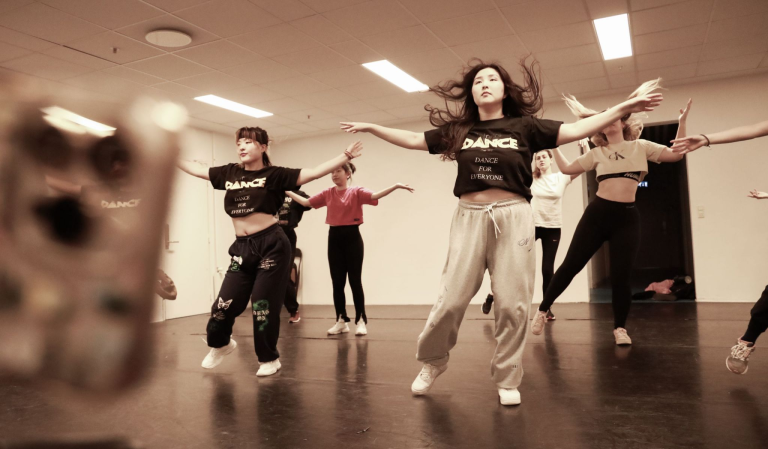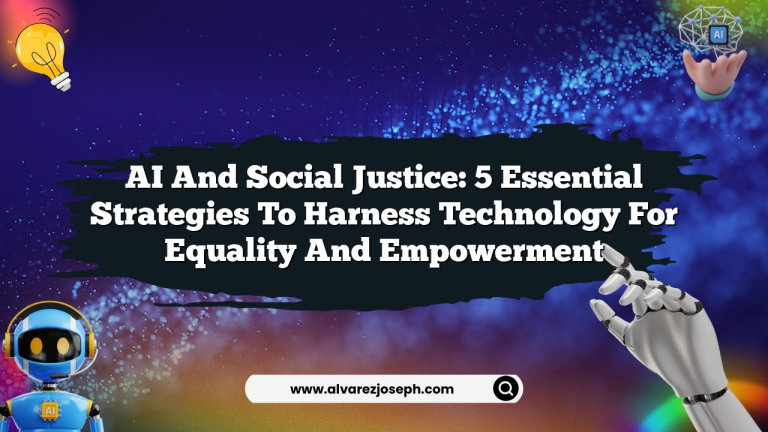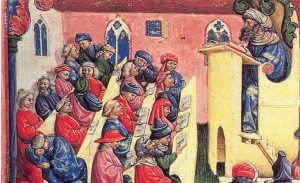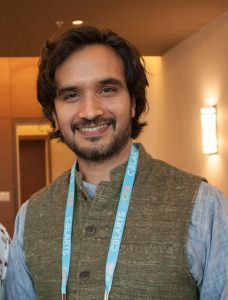The impact of the internet on fiction has been profound, reshaping not only how stories are told but also how they are consumed. As the digital age transforms reading habits, authors face modern fiction challenges that compel them to adapt their narratives to engage a demanding audience. With the rise of social media, the effects on writing are evident, as personal taste is often overshadowed by popular opinion and viral trends. Writers now grapple with how the internet has changed storytelling, striving to connect deeply with readers who are constantly distracted by a barrage of online content. Given these shifts, it begs the question: what does the future hold for literature in a world dominated by the internet and fiction?
In today’s digital landscape, the influence of online platforms on narrative form and style cannot be overstated. The evolution of storytelling in the age of technology presents writers with both obstacles and opportunities, as they navigate the new expectations set by an interactive audience. The traditional ways of engaging readers are being redefined by the pervasive presence of digital media and user-generated content. As we explore the ramifications of this shift, it’s crucial to understand how the internet has reconfigured literary landscapes and altered our approach to fiction writing, reading, and even what it means to connect on an emotional level.
The Evolution of Storytelling in the Digital Age
The rise of the internet has revolutionized storytelling, transforming how narratives are constructed and consumed. Traditional storytelling relied heavily on books, where readers immersed themselves in the written word, allowing their imaginations to flourish. However, with the advent of online platforms, storytelling has taken on new dimensions. Social media, blogs, and digital publishing have created a landscape where immediate reactions and audience engagement sharply influence the narrative process. Writers now find themselves navigating a complex interplay between their artistic visions and the expectations of a public that can instantly comment, like, or share their work.
Moreover, the accessibility of information that the internet provides allows for an array of voices and stories to emerge, democratizing the storytelling process. The ease of publishing online often leads to a saturation of content, challenging writers to create unique and compelling narratives to stand out in a crowded marketplace. Despite the challenges, this shift in storytelling dynamics also opens up opportunities for diverse representations and innovative formats. The blending of fiction with interactive elements and multimedia storytelling showcases how the essence of literature can adapt to modern sensibilities, illustrating the impact of the internet on fiction.
How the Internet Transformed Reading Habits
With the proliferation of digital content, reading habits have undergone a drastic transformation. The internet has made it possible to access a vast array of information and literature at our fingertips. However, this convenience comes at a cost; the depth and quality of reading experience have been impacted significantly. Readers today often shift between different forms of media—scrolling through social media feeds, watching videos, and accessing audiobooks—leading to shorter attention spans and fragmented reading experiences. Many find it challenging to engage deeply with a novel or lengthy narrative as they juggle numerous online distractions.
Furthermore, the immediacy of online content alters what we seek in reading. Instead of savoring a complex narrative, readers might gravitate towards bite-sized pieces that align with their fast-paced lives. This shift poses significant challenges for modern fiction writers, who must craft engaging narratives that capture attention quickly while still providing the depth and insight characteristic of traditional literature. In essence, the internet has not only altered where and how we read but also the very nature of the content we consume, reshaping our relationship with literature.
Impact of the Internet on Fiction: The Role of Social Media
The advent of social media has fundamentally altered the landscape of fiction. Writers are increasingly aware of how their interactions online can influence the reception of their work. The ability to instantly share thoughts, experiences, and snippets of their writing directly with an audience fosters a real-time dialogue that was previously unimaginable. While this can be beneficial for building a fan base, it also weighs heavily on authors, who may feel compelled to craft narratives that cater to trending topics or the preferences of their followers. This public accountability can stifle creativity, as writers balance personal expression with the desire for broad appeal.
Moreover, social media impacts the way stories are marketed and discovered. Viral sensations often hinge on the algorithms of platforms like Twitter and Instagram, where a single post can ignite widespread interest in a book. As a result, the traditional avenues of literary criticism and promotion have lost some of their influence. While this democratization allows for diverse voices to surface, it can also lead to a marketplace where quantity over quality prevails, potentially sidelining profound works in favor of those that are merely catchy or easily digestible.
Modern Fiction Challenges in a Digital World
Today’s fiction writers face a unique set of challenges shaped by the digital environment. One major challenge is the overflow of content available online, making it difficult for any one narrative to capture sustained attention. With readers inundated with choices, the task of standing out has never been more daunting. This scenario creates pressure on authors to adopt marketing strategies that prioritize immediate engagement over the deep, reflective storytelling that characterizes enduring literature. The struggle to maintain narrative integrity while appealing to a broad audience often leaves authors grappling with self-censorship or compromises in their creative expression.
Additionally, the blur between highbrow literature and mass-market entertainment poses further challenges. As storytelling styles merge and evolve through platforms like TikTok, readers may come to prioritize instant gratification over literary depth. This shift raises questions about the future of fiction—will complex narratives that require patience and engagement be lost in the quest for immediate satisfaction? Furthermore, the speed at which trends emerge and fade can lead to a cycle of rapid consumption that detracts from the reflective and meditative aspects of reading. As a result, authors must navigate these dynamic waters carefully to preserve the essence of storytelling while also resonating with contemporary audiences.
Authenticity vs. Public Perception in Fiction
In the current literary landscape, the quest for authenticity in fiction becomes increasingly complicated when influenced by public perception. Writers are often torn between expressing their truths and catering to audience expectations shaped by the internet’s fast-paced feedback loop. The traditional notion of writing for oneself has been challenged by the necessity to remain relevant in an ever-evolving digital culture. As public opinions fluctuate with every tweet or post, authors may find their creative voices diluted as they attempt to appeal to a wider audience.
Additionally, the rise of online criticism has created a culture of fear among writers, where the stakes of awkward or polarizing themes can deter authors from exploring essential, albeit uncomfortable, truths in their narratives. This tension between authenticity and public perception risks compromising the emotional depth of literature—an essential characteristic that allows fiction to resonate profoundly with readers. Writers must find a balancing act, striving to remain true to their stories and voices while also understanding the contemporary context shaped by the internet’s call for engagement and validation.
The Shift from Print to Digital: A Mixed Blessing
The transition from print to digital formats has profoundly reshaped how literature is consumed and created. On the one hand, digital platforms have broadened access to literature, allowing readers from diverse backgrounds to engage with a variety of works. E-books and audiobooks have made it feasible for people to carry multiple stories with them, promoting reading on-the-go and fostering new audiences. Additionally, authors can now publish their work independently, bypassing traditional publishing gatekeepers, thus allowing for a greater diversity of voices and stories in the literary market.
However, this shift is accompanied by challenges. The very convenience of accessing literature online has led to a decline in focused reading, with many readers favoring shorter, fragmented content over long-form narratives. Writers face the challenge of appealing to an audience that often skims through material rather than immerses in it. Moreover, the competition for attention has intensified; the ease of publishing online results in a cluttered marketplace, complicating the task for authors who seek to establish their unique brand. While the internet has opened doors for modern fiction, it also requires a nuanced understanding of the evolving landscape to navigate the complex interplay of digital consumption and literary creation.
Research and Accessibility: The Internet’s Double-Edged Sword
One significant advantage of the internet for contemporary writers is the unparalleled accessibility of research materials. Whereas previous generations of authors had to rely on physical archives and extensive library visits, today’s writers can locate vast amounts of information with a simple online search. This instantaneous access enriches the storytelling process, allowing authors to weave intricate details into their narratives that enhance authenticity and verisimilitude. Being able to research historical contexts, cultural references, and even technical details in real-time leads to storytelling that resonates well with informed readers and contributes to the creation of immersive worlds.
Conversely, this ease of access may inadvertently lead to information overload. Writers risk becoming overwhelmed by the sheer volume of content available, potentially hindering their focus. Additionally, the reliance on online research can create a detachment from in-depth understanding, as the nuances behind human experiences often emerge from personal interactions rather than just textual analysis. While the internet is indispensable in enabling informed storytelling, writers must balance digital convenience with traditional research methods, emphasizing the importance of lived experiences and deep observation that cannot be replicated online.
Emotional Resonance and the Influence of Technology
Navigating the intersection of emotional resonance and technological influence poses both challenges and opportunities for fiction writers today. The internet allows for rapidly changing trends that can interfere with a story’s emotional core, leading to content that may prioritize surface-level appeal over genuine connection. As audiences become accustomed to bite-sized entertainment, the challenge for authors is to craft narratives that evoke deeper emotional responses while competing for the audience’s fleeting attention. This landscape requires authors to delve into authentic, complex emotions to ensure their work can resonate amidst the distractions of the digital world.
Moreover, technology empowers writers to explore new forms of storytelling, including interactive narratives and visual storytelling methodologies that may enhance emotional engagement. The ability to integrate multimedia elements into literature offers authors fresh avenues to convey emotions, yet it calls for a deft touch to maintain the narrative’s integrity. This blend of technology and storytelling does not replace emotional truth; rather, it compels writers to innovate while remaining rooted in authentic human experiences. Thus, while the emotional landscape of modern fiction has evolved with technology, the essence of connecting with readers on a profound level remains pivotal.
The Future of Fiction in a Digital Landscape
As we look toward the future of fiction in an increasingly digital world, it becomes essential to consider what lies ahead for storytelling. The internet has undeniably transformed the way narratives are created, published, and consumed. Writers now have the potential to reach global audiences instantly, yet they must also contend with the pressures of a rapidly shifting cultural landscape. Understanding audience engagement, marketing dynamics, and the impacts of social media will be essential for authors who wish to thrive in this environment. Consequently, writers find themselves re-evaluating traditional narrative structures to engage readers in meaningful ways.
Nevertheless, despite the digital complexities, there exists hope for the enduring importance of fiction. The intrinsic value of storytelling—its capacity to foster empathy, challenge perceptions, and reflect the human experience—remains unchanged. As authors learn to navigate the internet’s influence while holding on to the core tenets of storytelling, we may witness a renaissance of imaginative literature. Through innovative approaches and the melding of technology with emotional depth, fiction has the opportunity to flourish in its new context, continuing to inspire and move readers for generations to come.
Frequently Asked Questions
What is the impact of the internet on fiction writing?
The impact of the internet on fiction writing is profound, as it has changed how stories are researched, developed, and consumed. Writers can easily find information online, making research quicker and more detailed. However, it can also lead to a decline in deep reading, as distractions from the internet compete for readers’ time. This results in modern fiction facing challenges in maintaining emotional depth and private truths that are essential to storytelling.
How has the internet changed storytelling practices in contemporary fiction?
The internet has transformed storytelling practices by creating a platform where readers interact in real-time, shaping narratives based on public opinions. This shift has transformed traditional readers into audiences influenced by social media, often pushing writers to cater their work to mass preferences rather than personal truths, thereby challenging the authenticity of creative expression.
What are the social media effects on writing in the digital age?
Social media affects writing by altering how writers perceive their audiences. In the past, writers could focus on personal expression; now, they often feel the pressure to conform to viral trends and audience expectations. This environment fosters a culture of instant feedback and approval that can hinder the creation of challenging or subversive narratives in fiction.
What modern fiction challenges arise from the internet’s influence?
Modern fiction faces challenges from the internet’s influence, such as the decline of in-depth reading and the prevalence of superficial engagement with texts. Writers must also navigate the balance between audience expectations and authentic storytelling, as traditional critical voices are overshadowed by mass opinion driven by social media.
How have reading habits changed due to the internet?
Reading habits have shifted dramatically with the rise of the internet, as many readers now prefer shorter, bite-sized content over longer novels. The ease of accessing digital information can lead to a more distracted approach to reading, often reducing the time spent on immersive literary experiences, which alters how fiction is consumed and appreciated.
| Key Points |
|---|
| The internet has transformed readers into larger audiences, influencing their tastes and making them more susceptible to public opinion. |
| Writers tailor their work to audience expectations shaped by social media, risking the authenticity of personal expression. |
| The internet offers immense research capabilities that have made fiction more detailed but competes for readers’ attention and time. |
| With less time spent reading books, the depth and immersion typical of traditional reading are diminishing. |
| Digital access to archives enhances storytelling but poses risks of losing emotional depth and face-to-face interaction. |
| Despite challenges, fiction remains a vital medium for exploring emotional truth, although impacted by societal shifts towards quick consumption. |
Summary
The impact of the Internet on fiction is profound and multifaceted, as highlighted by various authors in the discussion. The way we read and engage with literature has changed greatly, with readers becoming more like audiences influenced by social media, changing not just how writers tell their stories but also what stories are worth telling. While the Internet provides unprecedented access to resources and research, it also competes with reading time and alters the depth of our engagement with fiction. As writers adapt to a new landscape shaped by rapid communication and a public audience, the essence of what makes fiction a private and profound experience faces new challenges. Overall, the Internet has changed fiction significantly, presenting both hurdles and opportunities for authors in their creative pursuits.
